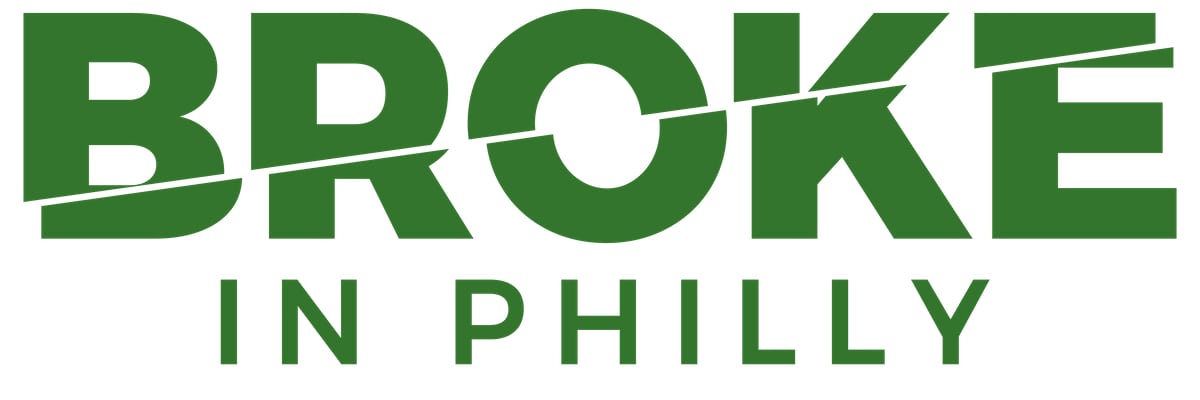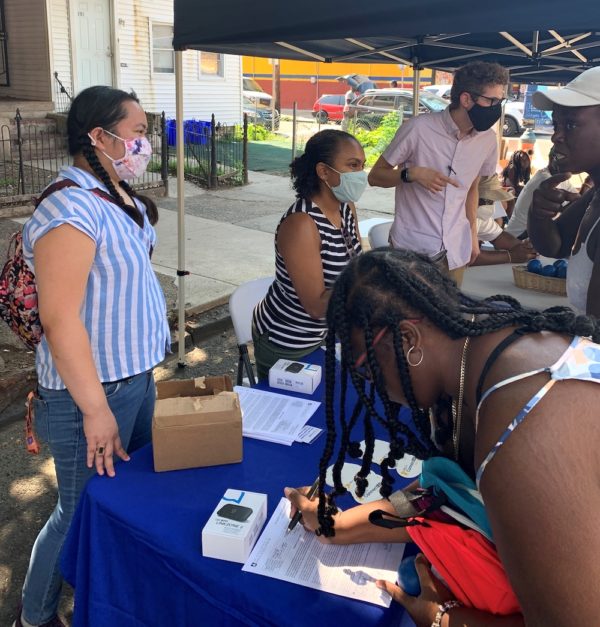
Technical.ly is one of 20+ news organizations producing Broke in Philly, a collaborative reporting project on solutions to poverty and the city’s push toward economic justice.
Two years ago, the pandemic forced most Philly students and their families to navigate the world of online learning. With this transition came concerns about all students having access to the internet and needed technology at home.
Enter PHLConnectED, a City of Philadelphia-run program started in August 2020 to provide K-12 Philadelphia families with internet access. The program was originally planned to last two years, said Ashley Pollard, K-12 digital access program manager with the Office of Innovation and Technology (OIT). But after announcing in March 2022 that the work would be continuing, her team has been looking at its now-third year as a “bonus year of free connectivity.”
“We’re trying to message it as: Along with the back-to-school time, get your internet,” Pollard told Technical.ly.
The original two-year plan formed alongside corporate and philanthropic partners came with a $17 million budget, and Pollard said the program was able to carry over some funds that they raised at the start of the program for the third year. Since its launch, PHLConnectED has facilitated over 22,500 new internet connections, including households and hotspots, per the City. A year ago, in August 2021, the program had enabled more than 18,700 internet connections.
The major focus for PHLConnectED this year, along with getting families connected to the internet, is digital skills classes. These free classes are hosted by community-based organizations and other partners, and they are targeted at caregivers of students in the school system to help them support their student.
The six providers working with the program are Congreso de Latinos Unidos, Girls Inc., Temple University, Drexel University, People’s Emergency Center and the Cambodian Association of Greater Philadelphia. The types of classes and schedules for each class depend on the provider, but topics range from learning about Microsoft Office and Google Suite to learning basic device functions and tasks. Find class schedules and enrollment info here.

City Hall in summertime. (Technical.ly file photo)
Caregiver understanding of technology will help students’ understanding of it, according to Pollard: Even though kids are back in the classroom, they can continue their education and feel supported by their caregiver at home.
“We want folks to feel empowered,” she said. “We want folks to feel skillful in using the internet and their devices. But from the school-aged household lens, it also was a family engagement strategy. Even though kids are back in school, there are digital platforms that are still around and that families are still interacting with.”
Aside from internet connections and digital literacy, this year, OIT is also considering how the program could benefit from the Infrastructure Investment and Jobs Act, which passed last November and brings $65 billion to broadband and digital connectivity investments nationwide. Each state received $100 million from the legislation, and the Pennsylvania Broadband Development Authority was established in February to manage that funding. OIT is in communication with the State of Pennsylvania to advocate for Philadelphia’s needs, with the aim of garnering further funding to keep PHLConnected and related programs going.
While the pandemic’s earliest access challenges are no longer urgent, the issue of digital connectivity remains important. PHLConnected will continue making and growing connections with schools, in particular, Pollard said.
“Yes, there might be other entities that are sort of managing digital access work in the day to day. But we want to continue to be partners with the schools,” she said, “so that families can access those resources in the same place that they access their school resources, and it’s all tied together.”
Sarah Huffman is a 2022-2024 corps member for Report for America, an initiative of The Groundtruth Project that pairs young journalists with local newsrooms. This position is supported by the Lenfest Institute for Journalism.Join the conversation!
Find news, events, jobs and people who share your interests on Technical.ly's open community Slack

Philly daily roundup: Women's health startup wins pitch; $204M for internet access; 'GamingWalls' for sports venues

Philly daily roundup: East Market coworking; Temple's $2.5M engineering donation; WITS spring summit

Philly daily roundup: Jason Bannon leaves Ben Franklin; $26M for narcolepsy treatment; Philly Tech Calendar turns one


